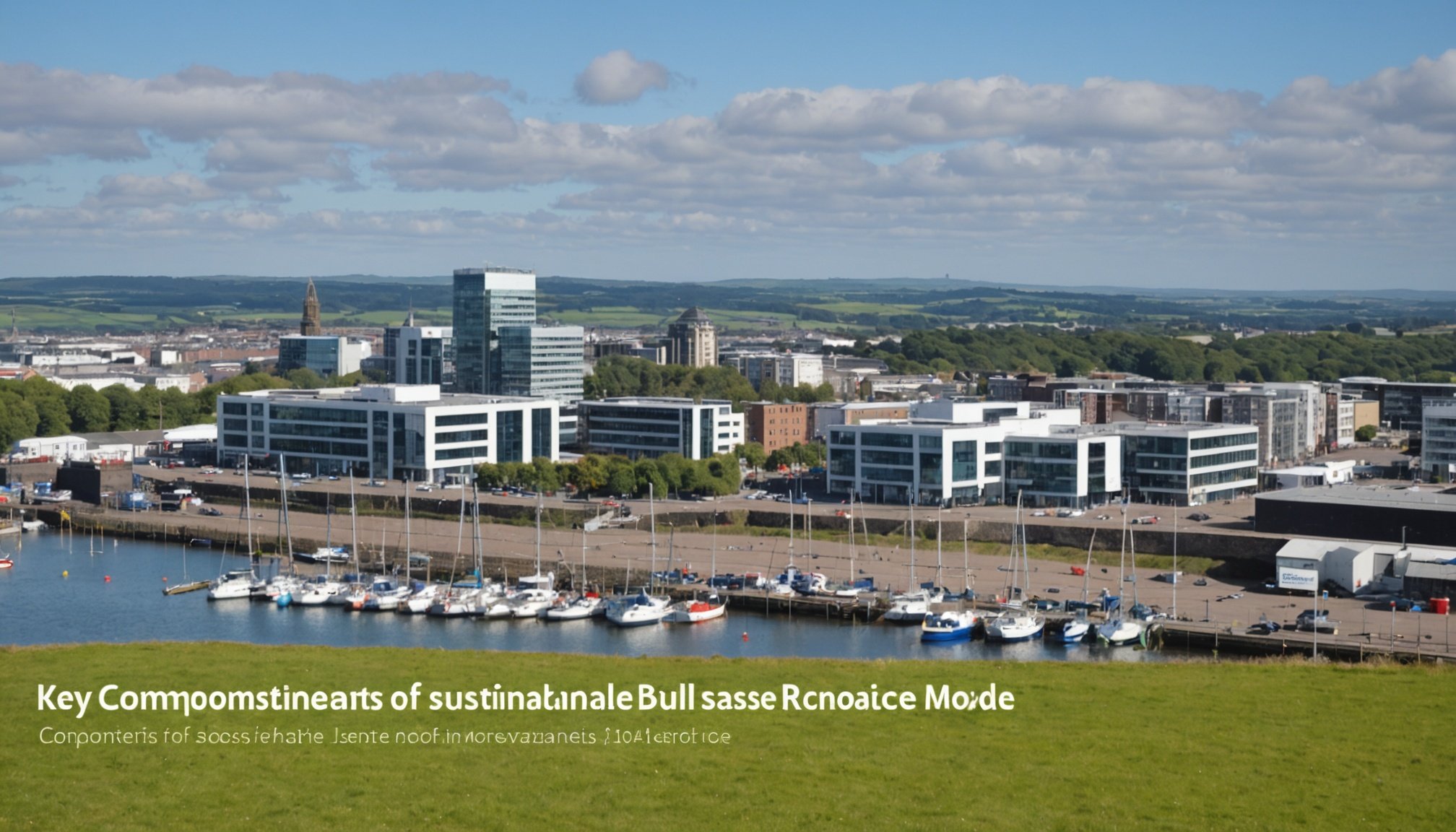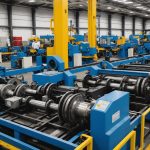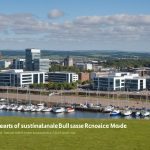Introduction to Sustainable Business Models in Swansea
In Swansea, the emergent landscape of sustainable business models offers a transformative opportunity for local businesses to integrate environmentally and socially responsible practices into their operations. Sustainable business models are structured to meet present needs without compromising future generations’ ability to meet their own. This approach encompasses a balanced fusion of ecological, economic, and social systems, enabling companies to thrive while contributing positively to the environment and society.
The economic landscape in Swansea is witnessing a shift as more entrepreneurs and existing businesses recognize the significance of sustainability. This city, known for its historical roots and scenic beauty, is increasingly embracing green policies, providing fertile ground for sustainability-centric entrepreneurship. Businesses are motivated by the potential for long-term cost savings, enhanced corporate image, and access to new markets that value environmentally friendly practices.
Also to see : Innovative Marketing Strategies to Skyrocket Your New Brighton Café’s Success
Key drivers for adopting sustainable models include consumer demand for responsible production, regulatory pressures aimed at reducing carbon footprints, and a global shift towards greener economies. Swansea’s businesses are particularly poised to leverage local resources efficiently and engage with the community to build resilient and impactful sustainable initiatives. By focusing on these areas, companies can not only attract eco-conscious consumers but also foster a healthier local environment and economy.
Key Components of Sustainable Business Models
Understanding and implementing the key components of sustainable business models can significantly benefit enterprises in various sectors.
Also read : Essential Strategies for Boosting Efficiency and Reducing Costs in Portsmouth’s Manufacturing Industry
Resource Management
An essential element is effective resource management, which involves optimising the use of local resources, reducing waste, and enhancing energy efficiency. Implementing proactive waste reduction and recycling strategies is crucial for minimising environmental impact. For example, companies can adopt practices that transform waste into valuable by-products or energy sources, thereby closing the material loop. Moreover, improving energy efficiency through sustainable technologies such as solar power or more efficient machinery lessens reliance on non-renewable resources and reduces operating costs.
Community Engagement
A robust sustainable business model also emphasises community engagement. This involves developing strong relationships with local stakeholders, incorporating corporate social responsibility initiatives, and establishing feedback mechanisms to gauge community impact. Regular dialogues with community members help identify areas for improvement, ensuring that business activities align with local priorities and values, and enhancing corporate reputation.
Economic Viability
Maintaining economic viability whilst being sustainable requires a strategic approach to profitability. Businesses must understand market trends for sustainable products, adapt their offerings accordingly, and explore financial support and grants specifically aimed at promoting sustainability. By doing so, companies can not only ensure financial stability but also contribute positively to the broader economic landscape.
Local Case Studies of Sustainable Businesses in Swansea
In the heart of Swansea, several sustainable businesses serve as exemplary models for others considering a similar path. These pioneering entities have not only thrived economically but have also positively influenced the community and environment. One such business has successfully implemented comprehensive waste management protocols, significantly reducing its carbon footprint while gaining community support. This approach demonstrates the key advantages of integrating sustainable practices.
Another standout example is a local cafe that sources produce from nearby organic farms, thereby supporting local agriculture and ensuring fresh ingredients. Their model of community-centric supply chains enhances environmental sustainability and promotes local commerce. By aligning their operations with eco-friendly suppliers, they encapsulate the holistic benefits of sustainable business models.
Impact assessments reveal that these businesses not only achieve profitability but also improve public perception and customer loyalty. The lessons from their sustainability journeys emphasize the importance of innovation and adaptability. Others can learn from their experiences in navigating challenges, such as regulatory compliance and initial cost hurdles, proving that sustainability is both feasible and beneficial in Swansea.
These cases illustrate the transformative potential of Swansea entrepreneurship, encouraging more businesses to adopt these practices and contribute to a brighter, sustainable future.
Step-by-Step Strategies for Building a Sustainable Business
Creating a sustainable business requires structured strategies and a strong commitment to sustainability.
Conducting a Sustainability Assessment
Start with a sustainability assessment. This involves critically examining current business practices and identifying areas ripe for improvement. For instance, analyse consumption patterns and waste output to uncover inefficiencies. Setting realistic goals is crucial—outline what sustainability success looks like over short and long terms.
Implementing Sustainable Practices
With goals in place, it’s time to act. Develop a detailed action plan outlining the specific sustainable practices to introduce. This might include sourcing eco-friendly materials or investing in renewable energy. Integrating sustainability into workplace culture through ongoing training ensures employees understand new practices and their importance. Regularly monitor and evaluate strategies’ success, adapting them as necessary to refine and improve outcomes.
Leveraging Technology for Sustainability
Technology can significantly bolster sustainability efforts. Use tools and software designed for sustainable resource management. For example, programs that track energy consumption enable businesses to identify reduction opportunities. Collaborative online platforms can strengthen community engagement, facilitating interaction and idea-sharing among stakeholders. Stay informed about innovative technologies like solar panels or electric vehicles, which can propel Swansea entrepreneurship towards a sustainable future.
Relevant Regulations Supporting Sustainability in Swansea
Navigating sustainability regulations is critical for businesses in Swansea aiming to enhance their environmental and social impact. The local business laws are designed to enforce environmentally friendly practices, ensuring that economic activities align with sustainability goals. Businesses must understand these regulations, which cover aspects like waste management, emission reduction, and energy efficiency, to remain compliant and competitive.
Complying with sustainability requirements involves familiarising oneself with local guidelines such as those on carbon emissions. These regulations not only dictate practices but provide frameworks for implementing sustainable business models that align with Swansea’s broader ecological goals. Non-compliance can result in penalties, making it essential for businesses to stay informed and proactive.
Swansea also provides various resources to aid compliance. There are grants and financial incentives for enterprises adopting eco-friendly practices, easing the transition to sustainable business models. Additionally, workshops and training sessions offer support, helping businesses understand compliance intricacies and integrate sustainable practices effectively.
Successfully navigating these regulations not only builds a positive corporate image but also attracts eco-conscious consumers. Engaging with regulatory bodies and local experts can provide further insights, ensuring businesses make informed decisions while contributing to Swansea’s sustainability vision.
Challenges and Solutions in Developing Sustainable Business Models
Creating sustainable business models in Swansea presents an array of business challenges. Financial constraints and resource allocation are primary hurdles. Many businesses struggle with the upfront investment required for eco-friendly technologies and practices. Additionally, balancing short-term profitability with long-term sustainability goals demands strategic foresight, often leading to difficult decisions about resource allocation.
Lack of awareness and education among stakeholders further complicates the transition to sustainability. Businesses may encounter resistance from employees or partners unfamiliar with sustainable methods. This challenge calls for comprehensive training programs to instill understanding and support for sustainable initiatives across all levels of the enterprise.
Effective solutions can mitigate these challenges. Engaging governmental and community support is crucial. Swansea offers grants and financial assistance to ease the financial burdens of adopting sustainable practices. Such support lessens the risks associated with initial investments.
Moreover, leveraging successful case studies from Swansea showcases innovative ways companies have surmounted sustainability obstacles. Businesses can draw inspiration from these examples, applying best practices adapted to their specific contexts. Solutions like community partnerships and incremental sustainability goals help businesses maintain momentum, demonstrating that overcoming challenges in sustainability is both attainable and rewarding.
Expert Insights on Sustainability in Swansea
The insights and experiences of local sustainability experts provide invaluable guidance for businesses in Swansea aspiring to adopt proficiently sustainable practices. Many industry leaders underscore the significance of collaboration and strategic vision in transforming conventional business models into sustainable ones. Swansea’s journey towards sustainability, according to these experts, is bolstered by its rich resource base and community support.
Key insights include the importance of aligning business objectives with environmental goals. Experts recommend integrating sustainability from the top levels of management, ensuring a unified vision. Proactive engagement with sustainable technology and adapting to ever-evolving regulatory landscapes, they argue, are essential strategies.
Future trends in sustainable business practices hint at a growing emphasis on circular economy models and increased utilisation of digital tools for sustainability tracking. Local leaders encourage innovation, advocating for businesses to explore new market opportunities that sustainable practices can unlock.
For businesses contemplating this shift, experts advise leveraging local networks, such as sustainability workshops or partnerships with educational institutions. These connections can provide fresh perspectives and technical expertise, easing the transition. Understanding the intricacies of sustainability from Swansea’s seasoned entrepreneurs can empower businesses to cultivate practices that thrive both economically and sustainably.











